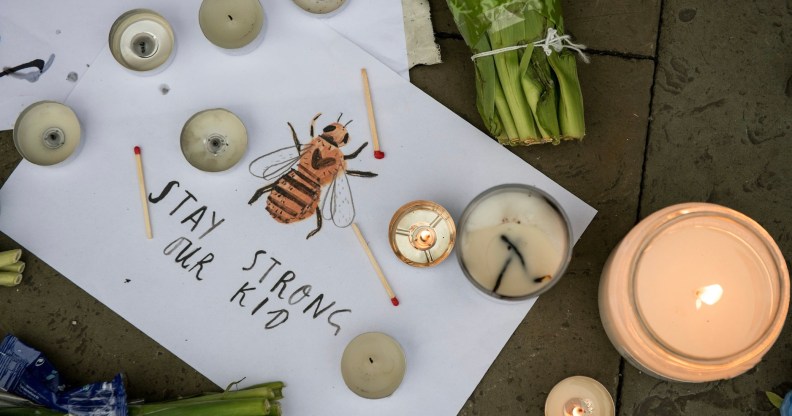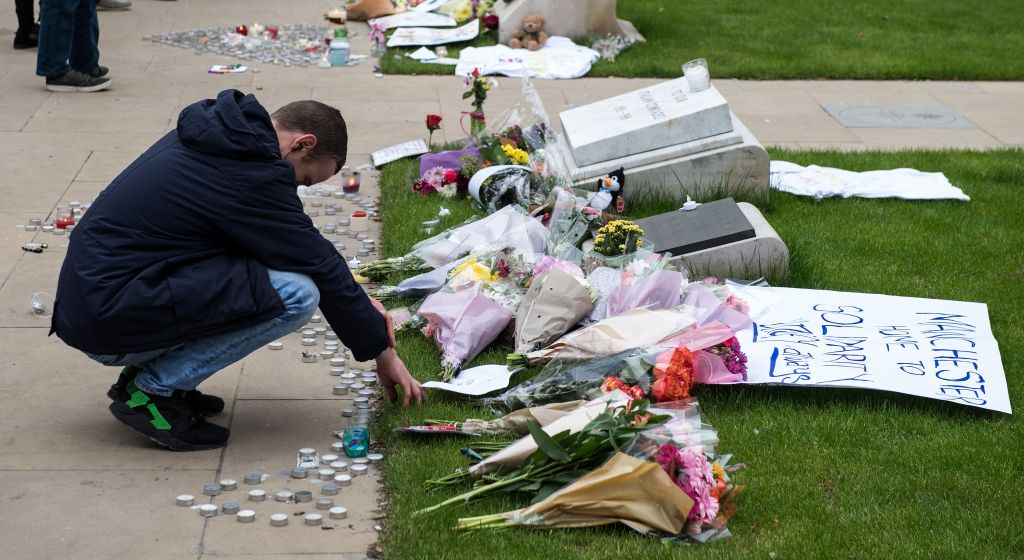Manchester Arena bomb: ‘Significant missed opportunity’ to prevent tragedy, report finds

Final report on Manchester Arena bombing finds MI5 missed ‘significant opportunity’ to prevent tragedy (Chris J Ratcliffe/Stringer via Getty Images)
MI5 missed a “significant opportunity” to prevent the bombing at Manchester Arena in 2017, a final report into the terror attack has concluded.
The 226-page report stated that there was a “realistic possibility” investigators at MI5 might have prevented terrorist Salman Abedi’s actions, had they acted decisively on two key pieces of evidence ahead of the attack.
The enquiry chairman, Sir John Saunders, acknowledged the “appalling loss” in the attack, preceding his statement with a minute’s silence to honour the victims.
He explained that while it was “quite impossible” to say whether any action would have prevented the attack, there was a “significant missed opportunity” to stop it.
The report concluded the public enquiry over the terror attack, which has been ongoing since 2020.
The attack on 22 May 2017 saw Abedi detonate a vest laden with explosives, killing 22 people including children, teenagers and parents waiting to pick them up from an Ariana Grande concert. More than 234 people were injured in what became one of Britain’s worst ever terrorist attacks.

The report does not detail the nature of the two pieces of intelligence that Saunders claimed could have led to preventing the tragedy.
It did, however, detail that one officer admitted they considered raising a security concern on one piece of intelligence, but did not immediately discuss it with colleagues, and did not write up a report on the day.
“The delay in providing the report led to the missing of an opportunity to take a potentially important investigative action,” retired high court judge Saunders said.
“Based on everything the security service knew or should have known, I am satisfied that such an investigative action would have been a proportionate and justified step to take. This should have happened.”
The final enquiry also heard evidence from MI5 officers, who said that if the piece of intelligence had been heard on the same day, it would have sparked “low-level investigative inquiries, in conjunction with the police”.
The report added that if the pieces of intelligence had been acted upon decisively, MI5 would have taken Abedi’s return from Libya to the UK “extremely seriously”.
It added that the suicide bomber should have been referred to the anti-radicalisation scheme, Prevent, and that his family holds “significant responsibility” for his extremist beliefs.
Ariana Grande has consistently paid tribute to the victims of the Manchester Arena bombing, writing on the third anniversary of the attack that her “heart, thoughts and prayers are with you always”.
In May 2020, she said: “I want to take a moment to acknowledge and send my love to everyone [who] is feeling the sadness and tremendous heaviness of the anniversary coming up this week. Not a day goes by that this doesn’t affect you and all of us still. I will be thinking of you all week and weekend.”
In 202, Hashem Abedi, the brother of the suicide bomber, was found guilty of 22 charges of murder, attempted murder and conspiracy to cause an explosion likely to endanger life. A jury decided that he had conspired with his brother to carry out the attack.
In addition to those killed and injured, about 670 concert-goers reported psychological trauma as a result of the bombing.

